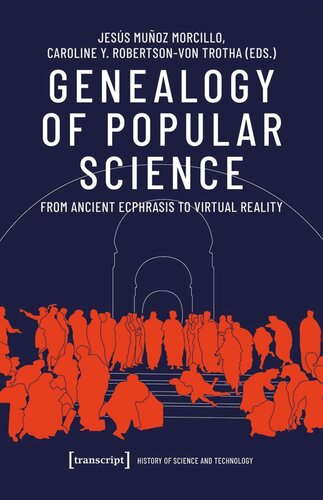

Most ebook files are in PDF format, so you can easily read them using various software such as Foxit Reader or directly on the Google Chrome browser.
Some ebook files are released by publishers in other formats such as .awz, .mobi, .epub, .fb2, etc. You may need to install specific software to read these formats on mobile/PC, such as Calibre.
Please read the tutorial at this link: https://ebookbell.com/faq
We offer FREE conversion to the popular formats you request; however, this may take some time. Therefore, right after payment, please email us, and we will try to provide the service as quickly as possible.
For some exceptional file formats or broken links (if any), please refrain from opening any disputes. Instead, email us first, and we will try to assist within a maximum of 6 hours.
EbookBell Team

4.1
90 reviewsDespite the efforts of modern scholars to explain the origins of science communication as a social, rhetorical, and aesthetic phenomenon, most researchers approach the popularization of science from the perspective of present issues, thus ignoring its historical roots in classical culture along with its continuities, disruptions, and transformations.
This volume fills this research gap with a genealogically reflected introduction into the popularization of science as a recurrent cultural technique. The category »popular science« is elucidated in interdisciplinary and diachronic dialogue, discussing case studies from all historical periods.
Classicists, archaeologists, medievalists, art historians, sociologists, and historians of science provide the first diachronic and multi-layered approach to the rhetoric techniques, aesthetics, and societal conditions that have shaped the dissemination and reception of scientific knowledge.